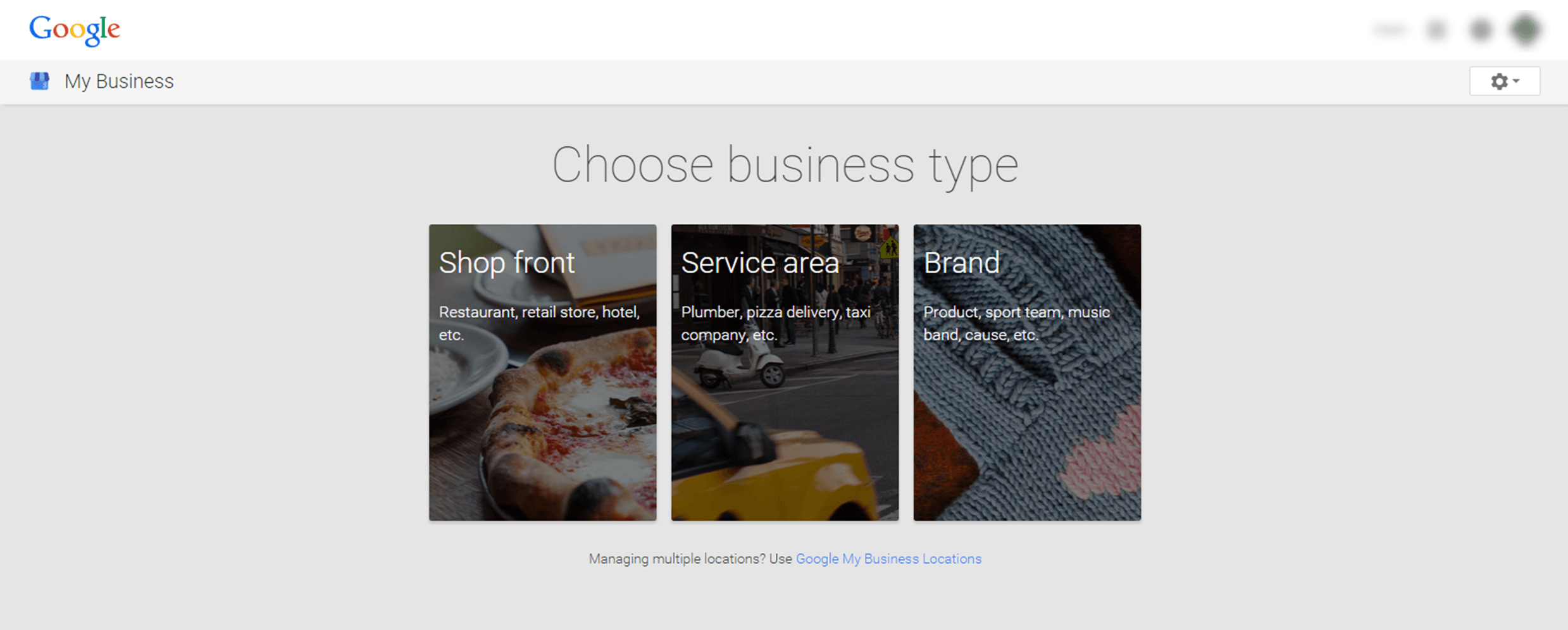Search Engine Optimization (SEO), most of us would agree, is vital in ensuring the success of many clients’ WordPress websites.
If nobody finds your client’s site, that client isn’t going to get business from it and they’re not going to be able to justify spending any more on it (i.e. on you) in the future. A bit of SEO can make a big difference to your client’s feelings about the Web, and can bring a lot of money your way from projects as a result of recommendations, or anything else that clients needs.
The problem? SEO takes time: lots of it.
Nevertheless, your clients cannot be expected to know how to optimize their sites alone – not least because effective SEO practice changes with such frequency; mostly at the whim of Google’s algorithmic variance. And it won’t do to allow their sites to become neglected – that wastes their money and won’t bring anything new to you in future.
There are ways to get the best of both worlds, though, by making sure your clients have excellent search engine rankings without the necessary steps being too much of a drain on your time – and what time you do invest will be paid upfront and well worth it in terms of overall client satisfaction and future work coming your way. This article will guide you through a few of the most effective ways to make this compromise work for both you and your clients.
Include SEO From the Beginning
First things first: You need to explain what SEO is and why it’s important for your client.
Another point is that keeping things simple to start off with for clients is probably a good idea. Many will not have heard of SEO before, much less thought about how to use it effectively to improve their business; to this end, using Google as the reference point for what you’re aiming at might be worthwhile – and anything else you can do to avoid confusion or information overload for the client. Make things as simple as possible to begin with and you can introduce more at a later date.
One nice easy task to get the client started with is setting up a business presence on Google+ if they haven’t already – they can even do this while their site is still being developed. Although not pure SEO, it will improve their Web presence and make their pages look better on Google results.

Setting up a business presence on Google+ can be favourable for the world’s most popular search engine. It’s simple enough that your client should be able to create one themselves.
Take Advantage of Existing Software
As a WordPress developer, you’ve got the power of plugins at your disposal, which can make lots of things easier. SEO is no exception.
Having explained the importance of SEO, you can offer your client an SEO plugin install and configuration on their project for a small extra cost. There are some very good SEO plugins available free in the repository, such as WordPress SEO by Yoast, which includes a helpful traffic-light-style visual representation of how good SEO is on any given post or page.

You should also use a keyword monitoring tool by adding Google Analytics code or activating the Site Stats module of the Jetpack plugin. These will show the user which keywords are getting them the most success and on which content, enabling them to tailor their future content to cater to these successful areas in a more focused way.
Since you want to give your client a fighting chance with SEO when they first start out, you can offer – again, for a reasonable fee – to have a few of their site’s first pages (e.g. the About page if they will have one) written in an SEO-friendly manner before the site is handed over to them. If you don’t want to be doing this, you can still offer the service but find a freelance writer who’s good at following instructions and has a good grasp of SEO concepts; take a small cut of the fee the client’s paying for the writing.
Offer SEO Training
So far, nothing I’ve suggested will actually be a huge drain on your time – the biggest would be configuring the settings of an SEO plugin, but they’re generally quite good to start with and require only a few minor tweaks. Now, however, let’s consider something that does require more time – but can absolutely be worth it for you and your client if you do it well.
SEO training is something you can have as a separate service, sold independently of your Web projects – although you should advise it for any SEO-conscious client alongside a new website. Using quite a bit of your time as it would do, you can charge a premium rate for it; the justification for clients is that it should overall improve their business’s prospects for the Web if they make the most of their session and go away with knowledge on how to boost their online impact.
What exactly needs to be included in such a training session will depend on a number of factors. Primarily, the client’s current understanding – do they have a vague idea of why keywords might be useful already, or are you going to have to explain that “Google” and “the Internet” are not synonymous? The amount of time available (roughly one hour per session is advisable) and changing SEO trends will also play a part, but the basics probably include:
- Reiterating why SEO is so crucial for their business – getting found by the right people equals more sales.
- The importance of writing content for their site’s blog regularly. Having a blog will give their rankings a boost in some search engines anyway (an advantage of blog-centric WordPress as a CMS platform) and writing regularly allows them to build a following of people who see them as an authority; post regular, interesting social media updates if they have accounts on Twitter, Facebook, LinkedIn or other websites; over time, create a large amount of SEO-friendly content for people to find in search engines.
- How to write SEO-friendly content, including:
- Using the SEO plugin, if you’ve installed one, to create good browser titles, descriptions and perform useful analysis.
- Coming up with eye-catching titles.
- Writing content of an appropriate length – less than 400 words will generally be considered “thin” content, whereas Google is looking for high-quality, helpful content.
- Weaving in keywords to their content, including linking them and making them bold to improve SEO. In saying this, content should still flow well and be interesting for humans to read it or they’ll just leave and it’ll be pointless.
- Never, ever, ever plagiarizing content – duplicating another site’s content will lead to penalties, not a quick boost.
- Noting again how crucial blogging will be: they need to stick at it, creating a bank of good content, and results will start appearing over time.
Generally, you should try to keep at least the initial sessions as simple as possible – once the client is confused, it’s hard to get back on track without wasting a lot of the session.
Given the ever-changing nature of SEO, you can offer your clients refresher sessions in the future. This way, you keep your clients’ techniques up-to-date, their sites fresh and bringing in business (reflecting well on you as the developer) and keep earning on the sales of the sessions.
You could also consider compiling a booklet for those who have taken the session to refer to (again, this could be sold as an extra if you wish), updating it with new trends. This might also help you keep up if you spend a lot of time doing things other than SEO because you’ll have to dedicate a little time to finding out anything new.
Build a Network of Affiliates
Development isn’t everything in the Web business, but if you’d rather it were, you can make that happen – just make sure your clients don’t miss out on anything important as a result by building a network of affiliates to whom you can outsource various other tasks for them. This does have the advantage of allowing you to have a greater client base as you spend your time only in the one area (development), not in several (SEO, copywriting, and anything else).
If you’re not hot on the idea of giving SEO tutorials then find someone to whom you can refer clients for that training. They’ll still receive the benefits, as will you (active, fresh, successful site to your names) and in fact you could work payment through the agency so you take a small cut.
The same can be the case with freelance writers and SEO copywriters if the client feels that despite SEO training they might not be up to the task, or won’t have enough time. You can negotiate good deals and get the best people for your clients, making your service more valuable and hopefully ensuring your clients stick with you for a long time.
Once you’ve established these ties, you hardly need to invest any more time in them – although you could continue to take a small cut of the fee for setting up the affiliates with the clients. Your clients get good service, your affiliates employment and whilst reaping the benefits of an improved site for your client, you also make a little extra.
Summary
The core message here is that you should be making SEO part of your Web development services because it’s important for the client, and for you to retain the client. Making websites more successful is only going to be a good thing for the client and will keep them enthusiastic about the new opportunities you can offer them on the Web. Yet it needn’t be a loss leader: you can make money out of providing and/or recommending SEO services.
Whether you set up the services in-house or do build relationships with affiliates, it will benefit everybody not to ignore SEO and getting business’ websites found in favour of simply pursuing new development jobs (tempting as that can seem). To do the best for your clients, you need these services available in some form – and you can be paid for it, so what could be better?
Do you have any techniques for making sure clients understand the importance of Search Engine Optimization whilst working within your time constraints? Please tell us about them in the comments.
Image Credit: shutterstock.com / Tarchyshnik Andrei









For all those who claim that SEO is dead, and don’t believe in placing keywords and etc. I’ll try to explain it in the simplest way.
If you use the word “soda” in your content you’ll reach to a different demographic, if you use “pop” you’ll reach to another, if you use “coke” you’ll reach to another.
It doesn’t matter what you know, as long as you can’t tell it to people in a wy they’ll understand it. Content may be the king but if he doesn’t get out of the palace he’ll lose his touch with the common folk which is actually the key to the success.
As the Community Manager for All in One SEO Pack for WordPress, I’d just like to get in a plug here for our awesome SEO plugin.
All in One SEO is the most download plugin for WordPress overall and is the top choice of true SEO pros who understand the value of simplicity of feature bloat and an elegant, easy to use interface, that is packed with all the features you need to manage both your on-site SEO and your Social Meta so that your site shares the right Title, Description, and Image into a social cross post.
Hopefully, some of you will try it out as an alternative to the one mentioned in this article. You can download the free version of the WordPress.org plugin rep or if you want the Pro version with premium support and additional features, then head to semperplugins.com. Use coupon code: SUMMER2015 to get 50% off the purchase price.
I find that a lot of SEO features are simply great marketing features. SERPs are essentially an advertisement for your company/website. Make them work hard for you. Tell Google what they should say!
Always helpfull, ET’s posts 🙂
Can I suggest one?…
‘how handle sitemap.xml with search engines’
And why, using sitemap, we have ‘not find’ page by search engine, when that page was erased muche tima ago (and suppose sitemap is correct)
may be? 😉
hi
Antonio
SEO is not dead but it is becoming much more human and less predictive. It’s becoming more common sense – to those who understand it and the web.
But we mustn’t forget that many clients don’t understand the workings of the web. Sure they can Google, use Netflix or YouTube and buy stuff off Amazon, but understanding good site structure, sign posting, landing page, calls to action, meta data on images still takes a professional eye.
Whether you call this good web design which you build into your project or SEO as an add-on, is up to the individual.
In my opinion the whole SEO-business is highly overrated. The only one getting profits is Google itself.
Of course the way presenting content is very important, as well as the title etc.
But be honest: in a business with so many many webdesign-agencies getting number one in the search-results would be hard to achieve.
That’s why I think putting energy in more realistic goals is a better way of getting new clients (and can save you lots of time/money).
This is what i recommend you follow to build a site Google ranks well http://googlewebmastercentral.blogspot.com/2011/05/more-guidance-on-building-high-quality.html
SEO is not dead. Just evolving. Bottom line I tell my clients is “content is king.” All Google wants to do is send their customers to the most relevant site based on what their customer types in the search box. It takes SEO knowledge to write relevant content to rank for those search words. No tricks or gimmicks – they are dead. But good writing is more important than ever.
Write good content, and use key search terms and semantics so Google can recognize that your site may be relevant to their customer’s search words. That is SEO. It is not rocket science, but it does take knowledge and skill to create content that is geared for the audience that is looking for you.
I know I’m a heretic, but I HATE Yoast SEO. I find it to be a rigid, impossible to please tyrant. No. No green dots for you! Even if you put your keywords in every possible SEO slot. Still no green dots. How can that be helpful. I did an experiment and followed Yoast’s requirements to T, stuffing my keywords into every important tag, sacrificing readability in the process. And still no green dots. If I find that to be the case, how could my very un-tech-savvy clients satisfy this tyrant.
I actually think that the Yoast plugin has not caught up with semantic search and thinks that Google et al are stuck in the same concrete thinking. I have better things to do with my life than to kow tow to the ever-elusive green dots.
I know I’m in the minority here, and that everyone else sings the praises of this plugin. But to me, it’s a case of the emperor’s new clothes. This emperor is naked. Now I feel better.
@MarciaH, I’m the Community Manager for All in One SEO Pack for WordPress. We invite you to try our free plugin, which is the most download plugin for all of WordPress. You can always upgrade to our Pro version for premium support and additional features at http://semperplugins.com. We hope you find our plugin satisfactory for your SEO.
I used to think the same way but I’ve recently launched my new site scarposter.com and I’ve instantly gotten a big Green light by Yoast. Now i am not touching anything…
SEO is dead…
While its true not to forget SEO, with Google’s changing its algorithm most often resulting in such thing as google dance, I rather advice some one to search for ways of generating traffic without relying on google. Your site’s traffic will not be impacted hard by a Google algorithm change pushing your site down the queue.
Excellent article – thank you!
I appreciate your time and effort, Tom.
Just have to say, 90% of the time, anyone offering SEO (as it is traditionally known to be) is selling snake oil.
With keywords blocked by Google, individualized results by Google for everyone, on-going and aggressive efforts by Google to block any working SEO tactics, and sites being banned for life by Google for even attempting what appears to be an SEO tactic — whether their SEO tactic works or not — SEO is generally a bad, bad idea.
In general, the only trick is there is no trick: Make good content that people will share and link to.
No offense, good SEO people out there, but it has to be said.
SEO isn’t dead and can’t be killed. It’s just an ongoing effort. It should be sold as a recurring monthly product not a one-time purchase.
I have to agree with your statement Joel. Other than doing some of the basic things that plugins like Yoast that help the spiders crawl your site, I avoid implementing any SEO tactics like the plague. If you focus your time and energy on creating great content and building a following, and you won’t have to worry about SEO.
To give everyone an example of success story, I co-authored a website called HotForWords. The site peaked at a million hits per month. It was paired with a YouTube channel under the same name. https://www.youtube.com/user/hotforwords?&ab_channel=HotForNutrition
The name has since changed to HotForNutrition for whatever reason. But if you look on about page, you’ll see that she is over 491,000,000 million views. Of course this isn’t anything special these days with other channels over a billion views, but back in 2008 it was one of the top ten channels on the whole YouTube service.
The website was perfectly position for Google Search because it was a site that focused on words. No website in their right mind would attempt such a thing today. Though it did position the site on the second or third line of the search everytime. We even captured the word “Hooker” that many porn website would have given their eyeteeth to have.
We could never figure out what Google and other search engines were using to rate our website. So we just focused on adding a new page (blog format) three times a week and getting our fans to comment all day long. We averaged about 500 comments per day. We didn’t use plugins like Disqus because Google would filter out those comments. Just the plain old vanilla WP commenting worked fine. You could even search out for your comment or someone else’s comment via Google Search.
Another benefit of WP is its use of php that created a new webpage on the fly when a new comment was made. This demonstrated activity which Google liked. Other than those little things, we didn’t spend any time with SEO. 80% of the energy was spent on making a good video and 20% keeping the comments rolling. Google search shouldn’t be your top marketing strategy. If it is then you’ve already lost the battle.
Just create compelling content and build a following, you’ve mastered SEO. You never have to worry about what algorithm Google is using today. If you have good content and high traffic, Google will get you listed on their search results.
@Joel: Totally agree with you.
This article would have been relevant a couple years ago but not so much today.
SEO as we know it is practically dead. Google is far more interested in social media integration, video and user engagement rather than keywords, page titles and blah, blah, blah.
The days of expensive and largely bogus SEO optimization are over.
As long as there are search engines and algorithms to rank in them, SEO will NOT be dead. He’s basically talking about on-page SEO which is pretty basic stuff, but still foundational to SEO. Without it search engines will struggle to know what your site is about.
SEO is not dead but it has changed. There are certainly companies selling snake oil, and old, keyword stuffed websites, just like there are “web designers” selling clients “super premium, custom” websites that are nothing more than a minimally customized off-the-shelf WordPress theme with nothing more than content the client provided.
There are even professionals blindly recommending that folks blog the hell of their website, no matter what the industry. Yes, Virginia, not everyone needs a blog, especially if said company doesn’t even have the budget or resources for it.
As always, in this industry, the devil is always in the details, and more importantly, setting expectations. Meta descriptions and page titles are just as relevant as they ever were, as is having decently marked up, semantic content, and some people aren’t even doing that right.
I tend of think of WordPress plugins as training wheels. Just installing Yoast SEO or any other plugin can help get you going but if you are clueless about what it’s doing under the hood, find someone who knows what’s going on.
Genial! muchas gracias, un gran aporte
salu2